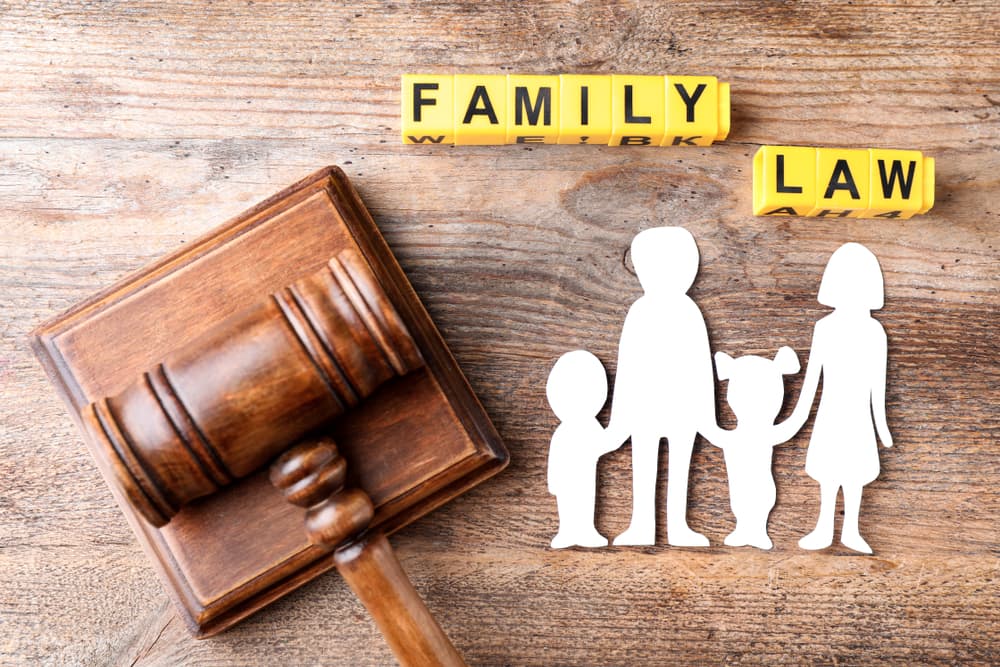May 6, 2025
Family law cases are already stressful matters, often involving sensitive issues such as your marriage, children, and more. They can directly or indirectly affect your finances, family relationships, where you live, and many other factors in your life. While you want to stand up for your rights, the last thing you want is to spend substantial time and money battling it out in court.
Fortunately, there are alternatives that can keep family law cases out of court in many situations. First, parties can negotiate, often through their attorneys, to try to reach a resolution informally. However, if negotiations are unsuccessful, family law mediation is another option before you head to litigation.
The right family law attorney will explore all options to resolve your matter out of court, including mediation if it is right for your case. Always consult a family lawyer at the start of the process so they can guide you to an efficient and positive resolution.
Schedule a Free Initial Consultation
Mediation is Often a Successful Alternative to Litigation
In some family law cases, disputes are resolved through litigation, which involves going to court and having a judge make decisions on your behalf. However, mediation provides an alternative approach to resolving family law issues. Mediation is a process that involves a neutral third party, known as a mediator, who facilitates communication between the parties and helps them reach a mutually agreeable resolution.
Unlike litigation, which can be time-consuming, expensive, and often adversarial, mediation offers a more collaborative and less confrontational approach. It allows the parties involved to maintain control over the outcome of their case and promotes a more peaceful and amicable resolution.
Mediation can be voluntary, as parties can opt to engage in mediation before they ever consider going to court. In some jurisdictions, judges require parties to try mediation for certain matters before they begin litigation as a matter of course.
How Mediation Works
In mediation, the parties meet with the mediator either together or separately to discuss their issues and concerns. The mediator acts as a facilitator, helping to identify each party’s underlying interests and needs and assisting them in finding common ground and reaching a mutually beneficial agreement. The mediator does not make any decisions or impose any solutions but instead helps guide the conversation and foster productive communication.
Mediation sessions can be conducted in person or even online, depending on the preferences and circumstances of the parties involved. The number of sessions required can vary depending on the complexity of the issues and the level of cooperation between the parties. However, in most cases, mediation can be completed in a much shorter time frame than litigation.
Family Law Issues You Might Mediate
Mediation can be used to resolve a wide range of family law issues. Here are some common examples:
Child Custody

One of the most significant family law issues when parents are not together is child custody. Mediation allows parents to work together to create a parenting plan that addresses the best interests of the child. They can discuss and negotiate various aspects, including visitation schedules, decision-making responsibilities, and communication methods.
Property Division in Divorce
A critical aspect of every divorce is the division of marital property. Mediation provides a forum for couples to discuss and negotiate the distribution of assets and debts. This can include the family home, bank accounts, retirement accounts, business interests, and other valuable assets. Mediation allows for a more personalized and fair distribution of property tailored to the specific needs and circumstances of the parties involved.
Spousal Support in Divorce
Spousal support, also known as alimony, may be a consideration in a divorce if one spouse requires financial assistance from the other. Mediation allows the parties to discuss their financial circumstances and needs openly. Through negotiation, they can reach a mutually agreeable arrangement that takes into account each party’s financial resources and the duration and amount of support needed.
Modifications of Existing Orders
In some cases, circumstances may change after a family law order has been established, necessitating modifications. Mediation can be a valuable tool for parties to discuss and negotiate changes to custody, visitation, child support, or spousal support orders. With the help of a mediator, they can find solutions that meet their changing needs and the best interests of their family.
Is Mediation Right for Your Case?
Mediation is not suitable for every family law case. You and your family law attorney must consider the dynamics of the parties’ relationship and the willingness to work together toward a resolution. If there is a history of domestic violence or abuse, or if one party refuses to engage in open and honest communication, mediation may not be the best option.
Always consult a family lawyer to assess your specific situation and determine if mediation is the right approach for your case.
You Still Need a Family Lawyer Throughout Mediation

While mediation is a constructive approach to resolving family law issues, remember that it is not a substitute for legal representation. Even with the mediation process, always have representation from a family lawyer.
A family lawyer can prepare you for mediation sessions, ensuring you know your rights and responsibilities under the law. They can review any proposed agreements and ensure they are fair and in your best interests. Having an attorney by your side throughout the mediation process can give you peace of mind and increase the likelihood of achieving a favorable outcome.
Contact an Experienced Family Lawyer Near You
If you are facing a family law case and considering mediation as a means of resolving your issues, seek legal representation from an experienced family lawyer. A skilled attorney can provide the guidance and support you need to get through family mediation and work toward a peaceful resolution.
Contact an attorney near you to discuss your case and explore your options for a peaceful resolution. They can explain the process, give personalized advice, and advocate for your best interests. Never face the challenges of family law on your own – enlist the help of an experienced family lawyer today.


